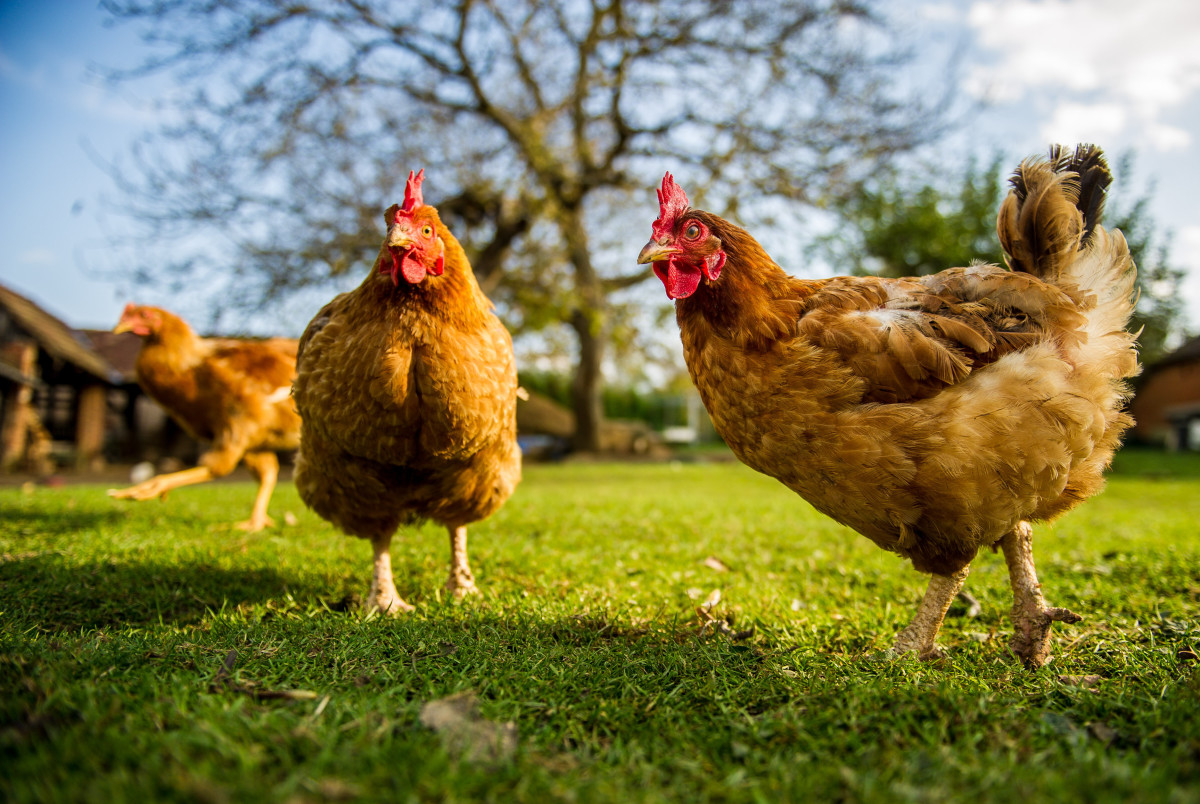Intermet chicks are a fascinating topic for poultry enthusiasts and farmers alike. These young chickens hold immense potential for growth and productivity, making them an essential focus for anyone involved in poultry farming or backyard chicken rearing. Understanding their needs, behavior, and health is crucial for ensuring their successful development.
Whether you're a seasoned farmer or a beginner exploring the world of poultry, intermet chicks play a pivotal role in your journey. They represent the future of your flock and can significantly impact your agricultural output. This article aims to provide comprehensive insights into raising and caring for intermet chicks, offering practical advice and expert tips along the way.
By the end of this guide, you'll have a clear understanding of the key factors influencing the health and productivity of intermet chicks. We'll cover everything from their dietary needs and living conditions to common health challenges and solutions. Let's dive in!
Read also:Kelly Lebrock A Comprehensive Look At Her Life Career And Impact
Table of Contents
- Introduction to Intermet Chicks
- Biography and Overview of Intermet Chicks
- Nutritional Needs for Intermet Chicks
- Housing and Environment
- Health and Wellness
- Common Diseases and Prevention
- Growth Stages of Intermet Chicks
- Breeding and Reproduction
- Practical Tips for Success
- Conclusion and Call to Action
Introduction to Intermet Chicks
Intermet chicks, often referred to as young chickens in the intermediate growth phase, are a critical stage in the life cycle of poultry. During this period, these chicks undergo rapid development, making it essential to provide them with optimal care. Their growth during this phase determines their future productivity and overall health.
The term "intermet" refers to the intermediate stage between the brooding phase and full maturity. This phase typically lasts from 4 to 12 weeks, depending on the breed and environmental conditions. During this time, intermet chicks require specific attention to their diet, housing, and health to ensure they thrive.
In this section, we'll explore the basics of intermet chicks, including their characteristics and the importance of proper care during this developmental stage.
Biography and Overview of Intermet Chicks
Data and Facts About Intermet Chicks
Intermet chicks are unique in their growth patterns and requirements. Below is a summary of key data and facts about these young chickens:
| Characteristic | Details |
|---|---|
| Average Weight | 200-400 grams at 4 weeks |
| Growth Rate | 10-20 grams per day |
| Feeding Frequency | 3-4 times daily |
| Water Requirement | 50-100 ml per day |
Understanding these details is crucial for anyone raising intermet chicks. Proper management based on these facts can lead to healthier and more productive chickens.
Nutritional Needs for Intermet Chicks
Key Nutrients for Growth
The nutritional requirements of intermet chicks are distinct from those of adult chickens. During this phase, their diet should focus on promoting rapid growth and development. Key nutrients include:
Read also:Phil Robertson A Deep Dive Into The Life And Legacy Of The Duck Commander
- Protein: Essential for muscle development and overall growth.
- Calcium: Important for strong bone formation.
- Vitamins: Necessary for metabolic processes and immune function.
- Minerals: Support various physiological functions.
Feeding intermet chicks a balanced diet is vital for their health. Commercial feeds specifically designed for this age group can provide the necessary nutrients. Additionally, supplementing their diet with fresh vegetables and grains can enhance their nutritional intake.
Housing and Environment
Creating a Suitable Habitat
Adequate housing is crucial for the well-being of intermet chicks. Their living environment should be clean, safe, and comfortable. Key considerations include:
- Space: Ensure each chick has enough room to move around freely.
- Temperature: Maintain a temperature of 70-75°F (21-24°C) during this phase.
- Ventilation: Provide proper airflow to prevent respiratory issues.
- Bedding: Use absorbent materials like wood shavings or straw.
By creating a suitable habitat, you can help intermet chicks thrive and reduce the risk of health problems.
Health and Wellness
Monitoring Health Indicators
Regular health checks are essential for ensuring the well-being of intermet chicks. Key indicators to monitor include:
- Appetite: Observe their feeding habits and ensure they eat regularly.
- Activity Levels: Check for signs of lethargy or unusual behavior.
- Feather Condition: Look for signs of feather loss or damage.
- Weight Gain: Track their growth to ensure they are developing properly.
Early detection of health issues can prevent more serious problems down the line. Consult a veterinarian if you notice any concerning symptoms.
Common Diseases and Prevention
Understanding and Managing Health Risks
Intermet chicks are susceptible to various diseases, but many can be prevented with proper care. Common ailments include:
- Coccidiosis: A parasitic disease affecting the digestive tract.
- Respiratory Infections: Often caused by poor ventilation or overcrowding.
- Marek's Disease: A viral infection affecting the nervous system.
Vaccination and maintaining a clean environment are effective strategies for preventing these diseases. Regular cleaning and disinfection of the coop can significantly reduce the risk of infection.
Growth Stages of Intermet Chicks
Tracking Developmental Milestones
Understanding the growth stages of intermet chicks can help you identify any developmental issues early. Key milestones include:
- Week 4-6: Rapid weight gain and feather development.
- Week 7-9: Increased activity and social interaction.
- Week 10-12: Preparation for transition to adult feed.
By tracking these milestones, you can ensure your intermet chicks are developing as expected and make adjustments to their care as needed.
Breeding and Reproduction
Preparing for Future Generations
For those interested in breeding chickens, understanding the reproductive cycle of intermet chicks is essential. Key considerations include:
- Selecting Healthy Breeding Stock: Choose chicks with desirable traits for breeding.
- Timing: Ensure chicks are mature enough before breeding.
- Nutritional Support: Provide a diet rich in nutrients to support reproduction.
Successful breeding requires careful planning and attention to detail. By preparing your intermet chicks for reproduction, you can ensure the continuation of a healthy flock.
Practical Tips for Success
Expert Advice for Raising Intermet Chicks
Here are some practical tips for raising healthy and productive intermet chicks:
- Start with a clean and well-prepared coop.
- Monitor their diet closely and adjust as needed.
- Keep their living area clean and free of debris.
- Provide ample space for movement and social interaction.
- Regularly check for signs of illness and address issues promptly.
By following these tips, you can create an optimal environment for your intermet chicks to flourish.
Conclusion and Call to Action
Raising intermet chicks requires dedication, knowledge, and attention to detail. By understanding their nutritional needs, providing a suitable environment, and monitoring their health, you can ensure they grow into healthy and productive adult chickens. This guide has covered the essential aspects of caring for intermet chicks, offering practical advice and expert insights.
We encourage you to take action by implementing the tips and strategies discussed in this article. Share your experiences and successes in the comments below, and don't forget to explore other articles on our site for more poultry-related content. Together, we can create a thriving community of poultry enthusiasts dedicated to raising healthy and happy chickens.
Sources:

